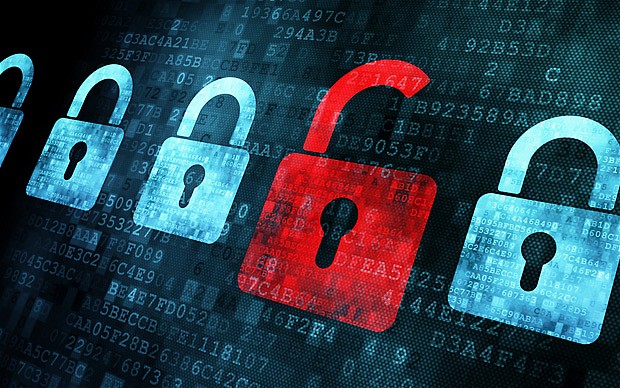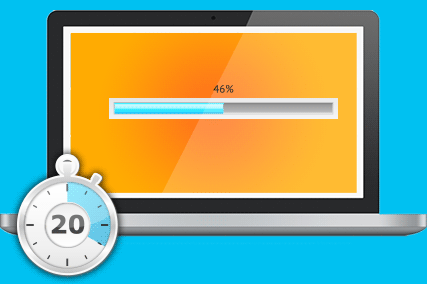
by can_admin | Jan 19, 2017 | Uncategorized
Thanks to the media and traditional virus scanning software, most of us know viruses and malware are bad and could have a catastrophic effect on our computers. However, hackers are getting smarter and more clever in their attempts to access our computers and data, and now more than ever you need to be cautious and aware of other ways your computer security could be compromised.
Davis Neild of Gizmodo recently did an article on this (here) that is worth repeating and thinking about how easily we could be compromised. They detailed 4 lesser-known ways that security breaches can happen, and how to help avoid them:
- USB Drives. Malicious USB devices can be made so that once they are connected to your computer, they auto-execute a virus that can do anything from logging your keystrokes to completely locking you out of your data. The caveat to these intrusions is that the USB stick has to be physically plugged into your machine to work- making it an ideal choice for college dorm pranks and those involved in workplace drama. It’s always best to keep a tight leash on your computer, and know who could have access to do something like this at any time.
- Webcam Monitoring. Most laptops today have a webcam built into the screen, and if the right software is installed on your machine it could be hacked to view you sitting in front of it. While more of a creepy intrusion than a data security threat, hackers that install this are probably are more interested in seeing your location (i.e. you’re working on a top-secret project at work or trying to check up on where your spouse is, etc.). Needless to say, a small piece of electrical tape over the webcam can prevent this, and might be good if you fear this type threat.
- Public WiFi Networks. This one is all too common as the number of wifi networks increases. Leaving your personal wireless network unprotected (without a password, or an easily guessable one) can allow anyone within range of your network to have access. Think about that nerdy high school kid next door, the coffee house within range of your house, or even people driving by. If you leave it open, someone experienced enough can get in, gain access to your computer and your files, or use your machine as a springboard to do other malicious activity online. What just might be a fun “prank” for them, could cost you thousands of dollars in data recovery bills should your computer get into the wrong hands.
- Social Engineering. This is perhaps the scariest one, and one of the hardest to automatically prevent against. Most simply, using “social engineering” to attack someone could be as simple as a popup or a phone call that seems to be from Microsoft when it’s really not. At it’s worst, someone specifically looking to gain access to YOUR accounts can try and use easily findable information (i.e. your mother’s maiden name from your facebook account), and try and convince tech support that they are you and need a password reset. If they’re successful, and you use the same passwords at multiple sites, it could lock you out of your email, bank accounts, and other sites, and do millions of dollars in damage.
Neild’s article details some precautionary steps you can take to avoid or protect yourself against these intrusions, and discusses good computer security practices overall. As always, making sure you use a unique password for each site or account you have is critical, along with a secure location either online or offline that they are stored so you can easily retrieve them when needed. Computer security expert Adam Goslin with Total Compliance Tracking (www.totalcompliancetracking.com) helps businesses prevent against security vulnerabilities on a daily basis. Goslin suggests going as far as creating unique fictitious security questions at each site that prompts for them, to add an extra layer of security. For example, when it asks for your “mother’s maiden name”, put “smith” or another incorrect answer rather than her real maiden name. Just remember to store this value in a safe location along with your password should you need it….because if you really do forget the password, providing her real maiden name won’t help you. Lastly, remember no legitimate computer company will ever call you and tell you that you have a virus on your computer, or that they need to reset your account….so don’t fall victim to anyone you don’t personally know asking for access to your machine or a password to your account.


by can_admin | Jan 12, 2017 | Uncategorized
Many of you have uttered these words one time or another…”my computer is slowing down”, “something’s not right with it lately”. It’s one of the top questions we get here, and as long as nothing is broken on your machine, and it doesn’t need an upgrade, there are many free things you can do on your own to maximize your computer life and see what’s going on:
- Reset Your Internet Browser. This is my go-to for fixing weird things like popups, search engine redirects, etc. Here’s how to do it, and it’s best to delete your personal settings and stored passwords if you can: In internet explorer, go to settings, click on the advanced tab, and click reset. Microsoft Edge is similar; click the 3 dots in the upper right corner to get to settings, and under “clear browsing data” make sure everything is checked and select clear. In Chrome, click the 3 horizontal lines in the upper right of your screen, click “Settings”, and type “reset settings” in the search box. Lastly, in Firefox, go to “Help” at the top of the window, and click on “Troubleshooting Information”, and click the refresh Firefox button. Mac users, you’ve got Safari to check too….go into History menu, and at the bottom, click “Clear History”, you will be prompted to reset the browser in that menu.
- Check for Installed Extensions. On both PC’s and Macs, one of the things that always seems to make my computer run out of control are extensions. Extensions are small programs that you allow to run on top of your internet browser of choice, and they usually let you integrate better to other programs you might be using. Google Docs is a popular one, Evernote, Pop-Up Blockers, etc. Use these with caution….while they’re super handy, having 10 running all at once will slow down your machine. Usually within settings in your web browser you can find out what extensions are installed, and uncheck all of them and see if speed on your machine is affected before you start adding them back on one by one.
- Remove Unnecessary Programs. If your computer is running out of control, it’s possible removing some old programs you don’t need anymore might free up system resources. Go into “Control Panel” and go to “Programs & Features”. A list of all of your programs will come up. When it loads, click on the column labeled “Installed On” to sort on your newest installed programs, putting the newest at the top of the list. Look through here and see if there are any you can delete- they just might be what made your machine crazy in the first place! Mac users, there isn’t a good uninstaller built into MacOS, but check out CleanMyMac at http://macpaw.com/cleanmymac….I LOVE this program and it’s saved me a lot of space and optimized performance (NOTE- not to be confused with MacKeeper which is spyware!!!)
- Disable Programs That Auto-Start. This is a biggie. Programs like Skype (that you maybe use once in a while) are HUGE system performance hogs and really make your machine slow and you don’t even know it. In Task Manager, click on the “Start Up” tab, and remote programs you don’t use every day. This won’t delete the programs or anything, this will just stop them from automatically starting when you boot your computer- you can still find them in the start menu when you want to use them. Mac users….go to System Preferences and “Users & Groups” and click the “Login Items” tab.
- Check Yo’ Antivirus/Spyware Programs. Here’s another hidden system hog. I’m always asked what my favorite antivirus & spyware programs are….and it changes. I want the one that has the most reliable security definitions, but also the one that runs light and clean on the computer and doesn’t make my computer slow and unusable. While Norton and McAfee have great reliable antivirus definitions, their programs really slow down your machine, so try using Kaspersky instead (which I sell for a BIG discount….contact me if interested!). The Free Antivirus solutions (AVG, Avira) don’t seem to take a lot of system performance, but are annoying with popups and notifications, and don’t seem to protect against as much as the paid offerings do. On either machine, it might be worth downloading MalwareBytes’s free scanner and running that through just to make sure there is no spyware on the machine (we always recommend running that once or twice a month…or better yet buying it and having it run automatically).
- Make Sure You Get Updates. Another important point to check is to see if there are any updates available for your machine. Search in Windows for “Windows Updates” and make sure there are none outstanding. On your Mac, go to the App Store, and click the last tab for “Updates”.
If things still aren’t working right, or I lost you back at step one, it might be time for a more thorough look through the system to see what’s up. Doing maintenance like this is like an oil change on your car….you need to do it every so often to get optimal performance. Not doing it doesn’t mean you have to buy a new car, it just means the car might not work as expected for as long as you would like. Keep the machine clean and up to date and ensure it has a long, healthy life!


by can_admin | Jan 5, 2017 | Uncategorized
Chances are, when you go to check your email each day, the majority of the emails in your inbox are either notifications or advertisements, as opposed to legitimate communications. While it’s nice (and sometimes motivating) to be able to quickly run through the list and delete what you don’t need or want, it can be time consuming and problematic if you don’t clean it out regularly. The new year is a great time to spend some time cleaning your inbox, and think about either unsubscribing from that store that emails you daily- or in some cases, requesting less-frequent communication. Here are a couple of steps you should consider if you think your inbox needs a good cleaning:
- Unsubscribe. This is usually the best way to eliminate inbox clutter or change the frequency of emails you get. Legitimate stores will offer an “unsubscribe” link at the bottom of the emails. Click on that link….sometimes you can request to get less frequent notifications (maybe a weekly newsletter as opposed to a daily promotion), or you can altogether unsubscribe from receiving notifications from that company. Be careful though….make sure you only click on the unsubscribe links on legitimate emails (not spam ones)….if you click on spam emails, you could be opening Pandora’s box to spyware and other malware problems.
- Use A Free Cleanup Service. There are some pretty cool free services out there that will scan your inbox for you and automatically find which mailing lists you belong to, and offer a one-click way to unsubscribe. It’s a timesaver, and an easy way to find what’s cluttering up your inbox. We like http://unroll.me. It’s free, safe, easy to use, and offers you the ability to further clean up your inbox by rolling promotional emails you still want to receive into one daily email. Similarly, http://deseat.me finds sites online where you have created an online user account that you might no longer need anymore.
- Consider A Paid Service. If you’re a high-volume email user, and have 100+ emails a day to navigate and organize, chances are you would benefit from one of the paid services that help you get some sanity in your inbox. Services like http://sanebox.com and http://mailstorm.co are paid sites that monitor your inbox and use complex algorithms to filter out junk, advertisements, and other non-important emails into different folders that make valid, actionable emails stand out so they don’t get lost in the shuffle. Both services have free trials, and are worth considering if you find yourself stuck behind too much email junk.
We would love to hear what suggestions you have for services or ways you use to clean up your inbox! Leave us comments below with your experiences!


by can_admin | Dec 15, 2016 | Uncategorized
We always seem to hear about it more this time of year….”thefts are on the rise”, “there are credit card skimmers at the gas pump”, “someone stole my identity”….sadly, the list goes on. Your digital world is just as vulnerable this time of year, and it too sees similar spikes in malicious activity during busy commerce times. In the last week alone, we’ve gotten calls from four different clients who were mistakenly duped into allowing someone to remote into their computer and infect them, jeopardizing their security. One client did a Yahoo search for a legitimate company’s tech support number, called the first number she saw on the screen, and within minutes was connected to someone overseas (naturally, named “Joe Smith”) who was able to remote in and “find thousands of virus infections”, leading them to recommend a $700 network firewall for their home. Another client got a persuasive phone call from “Microsoft” telling them that their virus protection was out of date, and they were infecting their iPads, iPhones and other devices in the house unless they could remote in and fix the problem for $250. These seem almost too comical…but when they’re happening to you, they’re all too real, and the impact can be devastating to your credit and your computer security….not to mention your ego.
While you can’t prevent these types of spams, you can be smarter about stopping them, and encourage your friends, family, and other less-tech savvy friends you know about how to be smarter in these situations.
- Be Careful Doing Online Searches! We’ve talked about this in the past (http://canyonero.org/2016/07/07/who-you-gonna-call/), as it’s so easy to unintentionally contact malicious companies for help. Malicious companies pay to be the top hit on search engines so they are the first number you see, and hopefully you call them first for tech support. They hope you call them first, so they can remote into your machine and either lock out all of your data, infect your machine, or try to sell you services.
- Cautiously Respond To Phone Calls! Let me remind everyone…NO legitimate company will EVER call you on the phone and say your computer is running a virus and they need to remote in to see what’s going on. Trust me….these people are very good talkers, and can make you believe they are in fact legitimate. If you think you’re in the clear because they remoted in and you hung up before paying them money….think again. They usually install “Trojan horse” type programs on your machine that won’t activate until a few months down the road, after you’ve already forgotten about this call. Also know that scammers buy phone lists on the black market- lists of people in older demographics, or people with more traditional, old-fashioned names- and they use those to call and scam unsuspecting people. If someone remotes in, have a trusted IT company review your computer as soon as possible afterwards!
- Watch Out For Email Scams Too! Most of us are probably smart enough not to fall for the email from the “President of Nigeria that left us thousands of dollars in an account”, but that doesn’t mean we wouldn’t fall for other email based-scams. Recently, another local small business owner was contacted about providing her services for a wedding, and after various emails back and forth about the details, the customer wanted to overpay their deposit, and the business owner realized she was getting roped into a scam. Don’t forget to be careful with craigslist or online-sales meet ups or ads you post or respond to!
Don’t be ashamed if you fall victim to something like this….it’s getting harder and harder to spot a scam from legitimate business. Educating your contact sphere to be aware and cautious of the different types of scams out there is best way to prevent being a victim. Please remember these tips and be smart and savvy anytime you work online!


by can_admin | Dec 8, 2016 | Uncategorized
We all have that person who is extremely hard to buy for, who already has everything and needs nothing. If they want a new phone or computer, they go out and buy it on their own, and they always have all the latest and greatest tech stuff already….so what do you get them? One of the easiest things to get them are accessories to help them maximize what they already have and use. I’m always asked for my opinion on what I think are “great gifts” to get the people that have everything, so by popular request, here are some of my favorite gifts to consider.
- A Backup Solution. Backup hard drives are a MUST in this technology driven world…and it’s a great gift to give. Even if you already have one, a Portable Backup Hard Drive is one of the smartest, and most practical gifts to give. We like the HGST Touro http://amzn.to/2gfZy1N because it has a low failure rate, is slim and small, and is a good price point. This is great for your parents or older friends, and especially great if you help them set it up so it’s all ready to go.
- Online Backup. If your friends aren’t much for a physical device, or would forget to plug it in, consider getting them a subscription to Carbonite Online Backup. For $60/year, it runs in the background on your computer, automatically backs everything up, and makes getting files back simple. If you really care about your data (or have pictures you would hate to lose on the computer), we recommend both an on-site backup solution (like the hard drive mentioned above), AND an online, off-site backup….that way your chances of ever losing the data are SIGNIFICANTLY lessened.
- Better Phone Accessories. This one is a fun one, especially because there are SO many options out there to choose from. One of my favorite purchases for my iPhone- without a doubt- is my corded, extra long Bolse iPhone Lightning Charging Cable (http://amzn.to/2gowh3q). The iPhone cables are notorious for fraying or breaking, and these are jacketed with fabric for extra strength and durability- and they never look dirty. I love the extra long one for my nightstand. Best of all, there are MFi Apple Certified (i.e. verified by Apple to work with your phone)…which is important to know if buying an off-branded iPhone accessory, as it won’t break or ruin your phone. It can be tempting to find cheap cables & accessories at Five Below or other discount stores…but check their reviews online and make sure they’re certified- nothing is worse than giving something that might harm them or their device….and there’s a LOT of cheap counterfeit accessories on the market. If they have too many cables, consider a military-grade drop protection case (these are customizable with a photo: https://www.rokform.com/products/iphone-6-6s-custom-rugged-case).
- Battery Backup Protection. This is one of my favorite gift ideas, and it’s oh, so important to have. I live in an area with frequent brownouts and power failures, and virtually every electronic device over $200 in value is hooked up to a battery backup device in my home. If the power goes out, my device stays on, and the power fluctuation doesn’t harm your devices. You should have one behind your TV and attached to any computer in the house. They’re not all created equal….and we like the APC ones for their guarantee: http://amzn.to/2gf7vPz.
- Get a Good Laptop Case. I’ll admit it, I’m a bag snob- but one of the biggest problems with computer bags out there today is that they don’t offer enough protection for your laptop if it’s dropped. Getting someone a laptop sleeve is a GREAT cheap gift…because it can be added to another bag for extra padding. We like this one: http://amzn.to/2gf17Is, because it’s basic and cheap- and can be put into whatever my favorite expensive designer laptop bag of the week is. If you looking for a bag, finding one with structure and padded walls on all sides of the bag is important (like this one http://amzn.to/2gFVcwY). There are literally hundreds of great bags out there- but not all have a structured frame and padded walls which significantly helps in a drop or fall.
- Accessorize Their Desktop. Most people have a specific desk or location they use their computer from- be it a laptop or a desktop. Consider upgrading their screen by getting a 25″ monitor (like this one http://amzn.to/2gG9A8w)….or better yet dual screens! If it’s out of the budget- a nice wireless keyboard/mouse combo is always well loved (we love Logitech, like this one: http://amzn.to/2gf347K)
It’s literally impossible to keep up with the latest products or trends out there, that’s why we love hearing suggestions from our readers or followers online. If you have a favorite- we would love to know- post it in the comments below. Making smart purchases on your technology and accessories helps ensure their longevity for years to come….so give practical, techy gifts to your loved ones this year!

red gift box on a laptop keyboard










